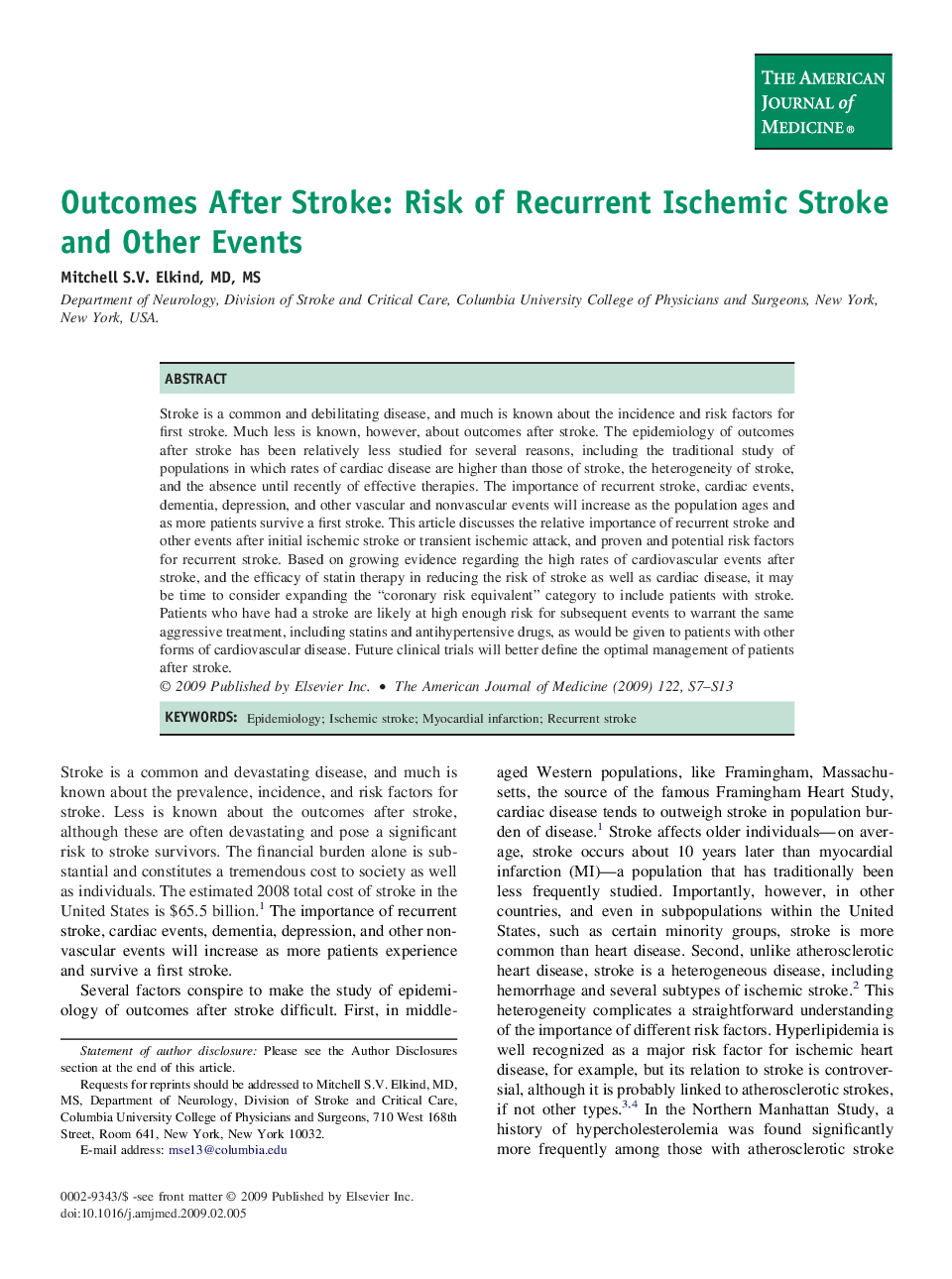| Article ID | Journal | Published Year | Pages | File Type |
|---|---|---|---|---|
| 2719550 | The American Journal of Medicine | 2009 | 7 Pages |
Stroke is a common and debilitating disease, and much is known about the incidence and risk factors for first stroke. Much less is known, however, about outcomes after stroke. The epidemiology of outcomes after stroke has been relatively less studied for several reasons, including the traditional study of populations in which rates of cardiac disease are higher than those of stroke, the heterogeneity of stroke, and the absence until recently of effective therapies. The importance of recurrent stroke, cardiac events, dementia, depression, and other vascular and nonvascular events will increase as the population ages and as more patients survive a first stroke. This article discusses the relative importance of recurrent stroke and other events after initial ischemic stroke or transient ischemic attack, and proven and potential risk factors for recurrent stroke. Based on growing evidence regarding the high rates of cardiovascular events after stroke, and the efficacy of statin therapy in reducing the risk of stroke as well as cardiac disease, it may be time to consider expanding the “coronary risk equivalent” category to include patients with stroke. Patients who have had a stroke are likely at high enough risk for subsequent events to warrant the same aggressive treatment, including statins and antihypertensive drugs, as would be given to patients with other forms of cardiovascular disease. Future clinical trials will better define the optimal management of patients after stroke.
